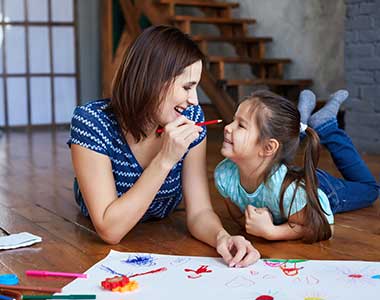10 Steps to Develop Emotional Intelligence Skills in a Child

Emotional intelligence skills have several benefits in a child’s life, and that includes strengthening the bonds of his relationships with other kids, increasing his self-confidence and enhancing his social skills.
So what should we know about the emotional intelligence skills, and how can we help our children develop them?
First, on what grounds is emotional intelligence built?
Emotional intelligence in a child depends on a number of essential skills like:
- Emotional awareness
- The ability to effectively express or suppress emotions
- The ability to properly interact with personal emotions and the emotions of others, like trying to cheer up a friend or responding in the right way to others’ feelings
How do we help our kids develop the skills of emotional intelligence?
Emotional intelligence is one thing, but having emotional intelligence skills is something else!
Here’s a list of some effective ways to help our children in developing them:
- Allow the child to express his feelings. Let’s do our best to accept these feelings instead of dismissing their importance, so that the child understands that an emotional life is neither dangerous nor embarrassing.
- Introduce the child to the different human emotions and feelings so that he knows that they’re acceptable and a part of our nature.
- Encourage the child to play freely with other kids because children learn a lot from each other.
- Believe in the child’s ability to take responsibility for his own life and happiness, and therefore, let go of the urge to do for him, what he is capable of doing for himself.
- Read to the child books that tell stories related to emotional intelligence, and discuss the details with him.
- Talk to the child about some of the difficult emotions that we sometimes feel and how to control them, like squeezing a pillow when angry or going somewhere safe when scared.
- Stand in front of a mirror with the child, and make funny faces that reflect different emotions. Then, move to reflecting the opposite of these emotions.
Finally, let’s lead our children by example when it comes to displaying emotional intelligence skills. This means that we need to deal in a positive manner with our personal feelings and the feelings of those around us, including our little ones!















 Parenting Articles
Parenting Articles

